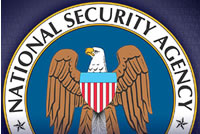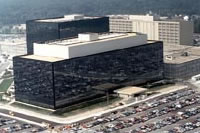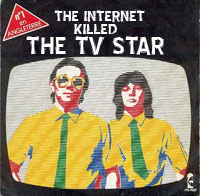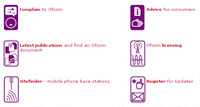 The US Democratic party has adopted net-neutrality as a party-political issue following the rejection of a second pro-neutrality amendment in a vote late last week.
The US Democratic party has adopted net-neutrality as a party-political issue following the rejection of a second pro-neutrality amendment in a vote late last week.
Previously we reported on the demise of the first pro-neutrality amendment as part of the ongoing review of US telecommunications law.
The Senate Commerce Committee were tied at 11 for and 11 against, with Republican members voting against the amendment and Democrats for it. A majority vote is necessary for a bill to pass. Afterwards, Republican Senator for Alaska, Ted Stevens, gave his reasons for voting against the bill as well as displaying his obviously comprehensive grasp of the technicalities of the Web, “It’s a series of tubes. And if you don’t understand those tubes can be filled and if they are filled, when you put your message in, it gets in line and its going to be delayed by anyone that puts into that tube enormous amounts of material, enormous amounts of material.”
The Democratic party subsequently took up the issue with the slogan “Republicans: They sold the environment to Exxon, and sold the war to Halliburton. Now they want to sell the Internet to at&t.”
 Former presidential candidate Senator John Kerry commented, “This vote was a gift to cable and telephone companies, and a slap in the face of every Internet user and consumer.” Another Democrat, Senator Ron Wyden, placed a ‘hold’ on the bill which temporarily stops further progress but a decision is inevitable and both sides are marshaling forces behind their cause.
Former presidential candidate Senator John Kerry commented, “This vote was a gift to cable and telephone companies, and a slap in the face of every Internet user and consumer.” Another Democrat, Senator Ron Wyden, placed a ‘hold’ on the bill which temporarily stops further progress but a decision is inevitable and both sides are marshaling forces behind their cause.
Lawrence Lessig greeted news of Democratic support with caution, “Good for the Dems that they got it. Bad that the issue is now within the grips of party politics.” He acknowledged that, give the amount of money involved, political involvement was inevitable.
Many fear that the loss of net-neutrality will signal virtual civil war on the Internet and that commercial interests are having too much effect on the US Legislature. Jeannine Kenney, Senior Policy Analyst, Consumers Union offered a concise summary, “The network neutrality nondiscrimination principle, which protects competition, maximizes consumer choice, and guarantees fair market practices, is one step closer to being abandoned with the Senate Commerce Committee’s vote. This endangers the most important engine for economic growth and democratic communication in modern society. Nondiscrimination made possible the grand successes of the Internet. Its removal can take them away.”
 Ofcom has just issued guidance that GPS repeaters are probably illegal in the UK, both in their use and their sale.
Ofcom has just issued guidance that GPS repeaters are probably illegal in the UK, both in their use and their sale. GPS devices need to be able to receive the positional information from satellites. Initially this involved having line-of-sight to the ‘birds’, but as chip-sets have improved, they’ve become more sensitive, so requiring less direct sight. If GPS units work within buildings, they do so at the sacrifice of accuracy. Even with the chip improvements, GPS will not work within buildings, and certainly not underground.
GPS devices need to be able to receive the positional information from satellites. Initially this involved having line-of-sight to the ‘birds’, but as chip-sets have improved, they’ve become more sensitive, so requiring less direct sight. If GPS units work within buildings, they do so at the sacrifice of accuracy. Even with the chip improvements, GPS will not work within buildings, and certainly not underground. One of the challenges facing Stephen Carter’s replacement as head of the UK communications regulator Ofcom, is how the frequency spectrum released by the move to digital terrestrial TV will be allocated. Not only is the decision crucial for Ofcom, who must reconcile both the requirement to allow the market to operate while taking into account the British citizen, but it also figures in the BBC’s strategy around the impending licence settlement and the organisations’ worldwide ambitions.
One of the challenges facing Stephen Carter’s replacement as head of the UK communications regulator Ofcom, is how the frequency spectrum released by the move to digital terrestrial TV will be allocated. Not only is the decision crucial for Ofcom, who must reconcile both the requirement to allow the market to operate while taking into account the British citizen, but it also figures in the BBC’s strategy around the impending licence settlement and the organisations’ worldwide ambitions. France, slower off the blocks in moving to a Digital Terrestrial TV service, with its’ amusingly acronym-ed TNT, has a solution that builds in HD capabilities, and for sure the UK will not wish to be seen falling behind mainland Europe.
France, slower off the blocks in moving to a Digital Terrestrial TV service, with its’ amusingly acronym-ed TNT, has a solution that builds in HD capabilities, and for sure the UK will not wish to be seen falling behind mainland Europe. Imagine a world where Internet performance is controlled by the company who owns the cables and where speed is sold to the highest bidder. Imagine a world where some Web sites load faster than others, where some sites aren’t even visible and where search engines pay a tax to make sure their services perform at an acceptable speed. That’s the world US Telecommunications companies (telcos) such as AT&T, Verizon, Comcast and Time Warner are trying to create.
Imagine a world where Internet performance is controlled by the company who owns the cables and where speed is sold to the highest bidder. Imagine a world where some Web sites load faster than others, where some sites aren’t even visible and where search engines pay a tax to make sure their services perform at an acceptable speed. That’s the world US Telecommunications companies (telcos) such as AT&T, Verizon, Comcast and Time Warner are trying to create. Think carefully the next time you edit your Flickr or Myspace profile.
Think carefully the next time you edit your Flickr or Myspace profile.  In September 2005 the European Commission adopted a proposal that would see telecommunications data held for one year and Internet data for six months and, last month, the European Court annulled the agreement which compelled airlines to submit private data on passengers flying to the US.
In September 2005 the European Commission adopted a proposal that would see telecommunications data held for one year and Internet data for six months and, last month, the European Court annulled the agreement which compelled airlines to submit private data on passengers flying to the US. This just in, Steven Carter, Chief Executive Officer of UK communication uber-regulator Ofcom will be standing down with effect from 15 October 2006.
This just in, Steven Carter, Chief Executive Officer of UK communication uber-regulator Ofcom will be standing down with effect from 15 October 2006. The next role for Carter has been the matter of some conjecture, nay gossip. Given Ofcom is seen by a lot of the world as a leader in communications regulation, there are many possible roles. Amoung those mentioned so far have been BSkyB, and with James Murdoch rumoured to be shifting upstairs the position may be open. Hey … how about the FCC?
The next role for Carter has been the matter of some conjecture, nay gossip. Given Ofcom is seen by a lot of the world as a leader in communications regulation, there are many possible roles. Amoung those mentioned so far have been BSkyB, and with James Murdoch rumoured to be shifting upstairs the position may be open. Hey … how about the FCC? A promising anti-spam service by Israeli company Blue Security has been brought to its knees by a renegade spammer hell-bent on protecting his spamming industry
A promising anti-spam service by Israeli company Blue Security has been brought to its knees by a renegade spammer hell-bent on protecting his spamming industry Spammers fight back
Spammers fight back With Blue Security reduced to communicating through their secondary TypePad-hosted Weblog at bluesecurity.blogs.com, the spammer moved in for the kill, launching a ferocious denial of service attack that closed down the TypePad and Live Journal servers owned by Six Apart.
With Blue Security reduced to communicating through their secondary TypePad-hosted Weblog at bluesecurity.blogs.com, the spammer moved in for the kill, launching a ferocious denial of service attack that closed down the TypePad and Live Journal servers owned by Six Apart. The frequencies 1781.7-1785MHz paired with 1876.7-1880MHz known as the GSM Guard bands have been made available to 12 licensees under the Wireless Telegraphy Act. They are national UK licenses, though the operators of the licenses will have to cooperate amongst themselves so that interference between themselves doesn’t occur. Ofcom expect the licensees to form an industry body that will self-regulate. Operators will also be required to register all radio equipment in the “Sitefinder” database (currently populated by the GSM and 3G operators).
The frequencies 1781.7-1785MHz paired with 1876.7-1880MHz known as the GSM Guard bands have been made available to 12 licensees under the Wireless Telegraphy Act. They are national UK licenses, though the operators of the licenses will have to cooperate amongst themselves so that interference between themselves doesn’t occur. Ofcom expect the licensees to form an industry body that will self-regulate. Operators will also be required to register all radio equipment in the “Sitefinder” database (currently populated by the GSM and 3G operators). Winning Licensees
Winning Licensees New entrants could enter into roaming agreements with the current operators, but unless Ofcom mandates this (which is unlikely) there’s likely to be strong opposition. Since some of the license winners already have GSM networks, they can offer localised services knowing there’s no interference problems with existing infrastructure.
New entrants could enter into roaming agreements with the current operators, but unless Ofcom mandates this (which is unlikely) there’s likely to be strong opposition. Since some of the license winners already have GSM networks, they can offer localised services knowing there’s no interference problems with existing infrastructure. If you thought the switchover to digital television was going to be a challenge, spare a thought for the regulators, policy makers and engineers who are already tasked with trying to figure out the best way of re-allocating the spectrum freed up by switching off the analogue broadcasting signal.
If you thought the switchover to digital television was going to be a challenge, spare a thought for the regulators, policy makers and engineers who are already tasked with trying to figure out the best way of re-allocating the spectrum freed up by switching off the analogue broadcasting signal. The first two sessions focused mainly on the problems associated with harmonisation. It is essential that adjoining states will have to work together to allocate spectrum, if there are not to be interference issues. The ITU’s
The first two sessions focused mainly on the problems associated with harmonisation. It is essential that adjoining states will have to work together to allocate spectrum, if there are not to be interference issues. The ITU’s  Of course regulatory uncertainty is same for all those looking to unlock the digital dividend (although some argue that the broadcasters are well positioned because they already sit on the spectrum). Whatever happens its going to be a complex and highly political interplay between policy makers, regulators and transnational organisations such as the ITU.
Of course regulatory uncertainty is same for all those looking to unlock the digital dividend (although some argue that the broadcasters are well positioned because they already sit on the spectrum). Whatever happens its going to be a complex and highly political interplay between policy makers, regulators and transnational organisations such as the ITU. Big glasses-toting Buggles sang about ‘Video Killing The Radio Star’ back in 1979, but new figures from Ofcom suggest that the while Internet may not exactly be killing TV, it’s certainly giving it a bit of a duffing behind the bike sheds.
Big glasses-toting Buggles sang about ‘Video Killing The Radio Star’ back in 1979, but new figures from Ofcom suggest that the while Internet may not exactly be killing TV, it’s certainly giving it a bit of a duffing behind the bike sheds. Industry pundits are collaring the Internet as the reason for this decline, along with DVDs and gaming.
Industry pundits are collaring the Internet as the reason for this decline, along with DVDs and gaming. Consumer broadband continues its exponential growth, exploding from zero to 10 million connections in just over seven years, with some 70,000 new connections being added per week.
Consumer broadband continues its exponential growth, exploding from zero to 10 million connections in just over seven years, with some 70,000 new connections being added per week.